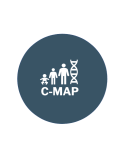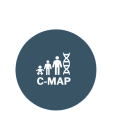ADHD
How ADHD Can Be Passed From Parents to Children
Genetic transmission vs. "genetic nurture."
Posted March 9, 2023 Reviewed by Lybi Ma
Key points
- Genetic transmission vs. genetic nurture may explain links between parental characteristics and their children’s ADHD traits.
- Based on data from 19,500 Norwegian families, there is evidence of genetic transmission but little evidence of genetic nurture.
- Parents’ own ADHD, education, cognitive abilities, and smoking may be linked to children’s ADHD traits due to the genes they share.
- Genetic nurture may partly explain the association between mothers’ neuroticism and children’s ADHD traits.
Parents and children are often alike. This is also true for neurodevelopment and mental health. In fact, we know that children of a parent with a neurodevelopmental condition have an increased risk of developing the same or a related condition. But why is that?
In a new study published in Molecular Psychiatry, we looked at risk transmission across generations for traits characteristic of attention-deficit hyperactivity disorder (ADHD). We examined two important possibilities.
The first was genetic transmission. Genetic transmission happens when ADHD genes shared within families contribute to ADHD traits in both parents and their child. In such cases, even if the child is not reared by their biological parents (adopted children), the risk will still be there.
The second possibility explored was more environmental. Let’s say a parent has ADHD, this might affect the way they are able to organize the home environment, and more chaotic home environments may in turn contribute to increased ADHD traits in children.
The Link Between Parental Characteristics and Children’s ADHD Traits
Many factors play a part in the development of ADHD traits in children. Previous research has suggested that ADHD has a strong genetic component, with studies finding that siblings of children with ADHD have a higher likelihood of developing ADHD.
Several environmental factors, some of which relate to parents, have also been the subject of research. These include parental ADHD, mental health problems, traits like neuroticism (a disposition to experiencing negative emotions), and other parental characteristics like cognitive ability and education levels.
Children of parents who smoke, drink more alcohol, or use cannabis, especially during pregnancy, may also have an increased likelihood of developing ADHD traits, according to past research. However, previous studies seldom considered that parents don’t just provide environments, but also pass on their genes to their children.
The prevailing understanding of the current evidence base for associations between parental characteristics and their children’s ADHD traits is that parents create environments that may increase or decrease the chances of children developing traits characteristic of ADHD. However, investigating associations between parental factors and children’s ADHD traits is not as straightforward as we once believed. In the new era of genomic research, we now know that many ADHD predisposing factors are themselves influenced by our genetic makeup.
For example, genes involved in how our brains react to rewards, or how likely we are to take risks, may make us more susceptible both to start smoking and developing ADHD traits. Going back to the example of chaotic home environments and children’s likelihood of developing ADHD traits, these environments may be explained by ADHD genes shared between parents and children rather than due to nurture.
New Evidence on Genetic and Environmental Mechanisms
Molecular Psychiatry recently published one of our studies, "Genetic nurture versus genetic transmission of risk for ADHD traits in the Norwegian Mother, Father, and Child Cohort Study." In this study, we explored the role of genetics in the development of ADHD traits in 19,500 children and their parents.
Families in this large and unique study were genotyped. This allowed us to calculate polygenic scores, an index of a person’s genetic propensity to a specific trait or disorder, for both parents and their children. The study also measured children’s ADHD traits using mothers’ ratings of their children’s behaviour.
We used a new method to jointly model polygenic scores for mothers, fathers, and their children indexing ADHD itself, other mental health conditions, substance use, cognitive ability, and education. Because children inherit half of their genetic makeup from each parent, we were able to dissect associations between children’s ADHD traits and parent’s polygenic scores into two components:
- associations due to parent’s genes that were also inherited by their children
- associations due to parents’ genetics that children did not inherit
Associations between parents’ genes not passed on to their children are called “genetic nurture.” Genetic nurture refers to environmental effects because parents’ genetics not shared with children is assumed to influence children’s development via environmental mechanisms such as the home environment provided by parents.
The results indicated that most parental characteristics, including parents’ ADHD, smoking, education levels, and cognitive abilities, are linked to their children’s ADHD traits, at least in part, due to genetic transmission. We found little evidence that parental characteristics influence children’s ADHD traits because of genetic nurture. One exception was that mother’s polygenic score for neuroticism was associated with children’s ADHD traits after controlling for genetic transmission, indicating genetic nurture effects.
Overall, these new findings indicate that the transmission of ADHD traits from one generation to the next is largely explained by the genes parents and children share, rather than by genetic nurture. As a result, previous evidence for associations between parents’ characteristics and their children’s ADHD traits may have overestimated the importance of environmental effects. Rather, much may be explained by the genetic lottery that makes each child unique.
The Findings in Context
Some ADHD predisposing factors, like parents’ own ADHD traits or maternal smoking during pregnancy, are partly due to the genes parents and children share rather than predominantly due to the environments parents provide. Nevertheless, parenting can make a big difference in children’s outcomes. There is evidence, for instance, that parent coaching support can improve functioning in children with ADHD. Environmental influences can make a difference in the outcomes of children, even when aspects of their development are genetically influenced.
This post was written by Wikus Barkhuizen, Ph.D., and Jean-Baptiste Pingault, Ph.D.
Facebook/LinkedIn image: Liderina/Shutterstock
References
Pingault, JB., Barkhuizen, W., Wang, B. et al. (2022). Genetic nurture versus genetic transmission of risk for ADHD traits in the Norwegian Mother, Father and Child Cohort Study. Molecular Psychiatry. https://doi.org/10.1038/s41380-022-01863-6
Agnew-Blais, J.C., Wertz, J., Arseneault, L., et al. (2022), Mother's and children's ADHD genetic risk, household chaos and children's ADHD symptoms: A gene–environment correlation study. The Journal of Child Psychology and Psychiatry. https://doi.org/10.1111/jcpp.13659




